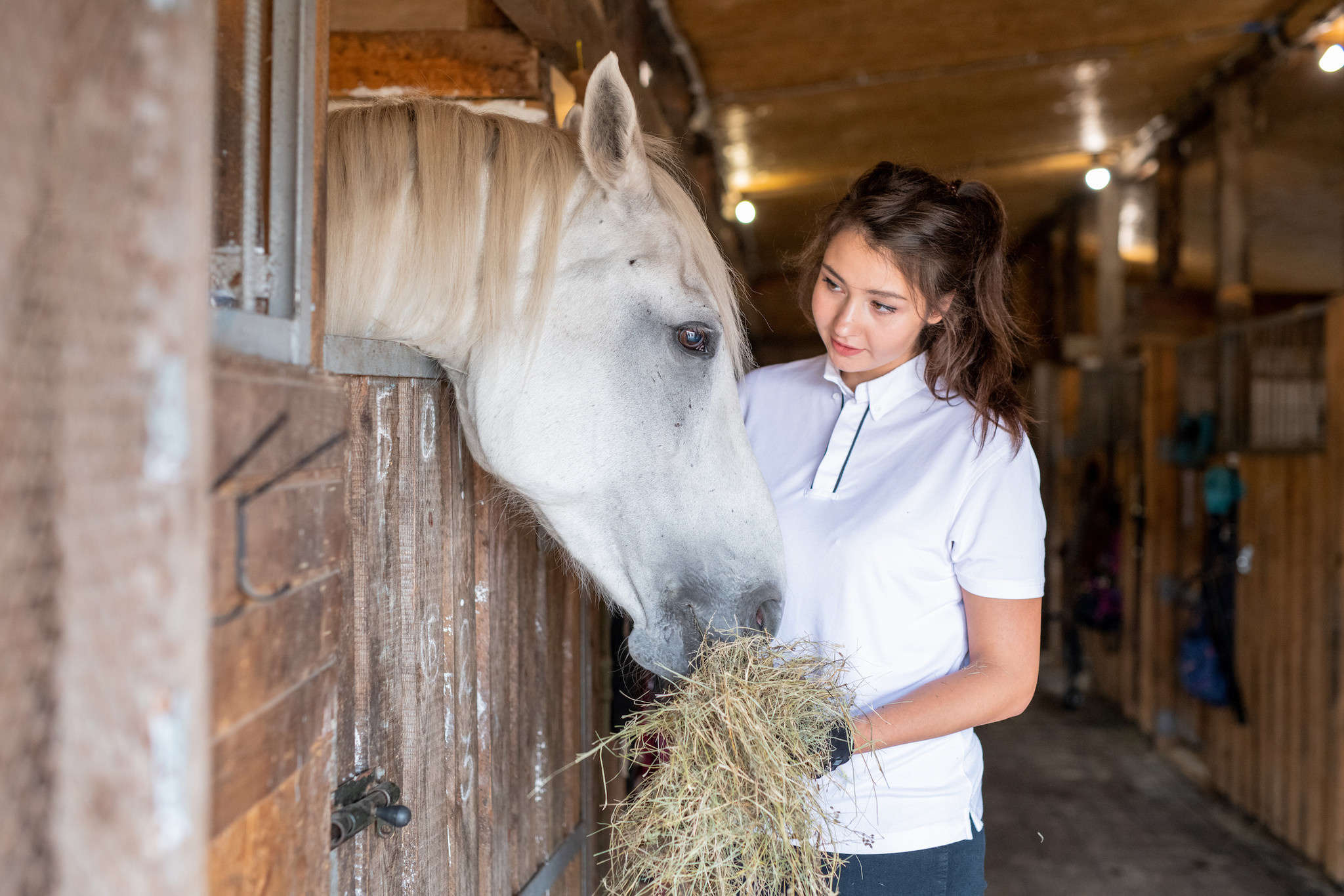How to feed and maintain your horse?

You are planning to buy a horse, but you are not yet aware of what to expect once it is in your home. We don't need to tell you that feeding and care are both important for the health and well-being of horses. However, it is necessary to know their needs in relation to their natural living conditions.
The different types of feed to choose from
Before going into all the details, you should know that horses are herbivores and require a balanced diet rich in fibre on a daily basis, whether they are kept in a box or roaming in the meadow. Its food consists mainly of grass and forage, but also cereals, food supplements and, above all, plenty of water.
Horses can consume between 50 and 100 kg of grazed grass per day depending on their physiological needs. They have the opportunity to enjoy this to the full in their ideal world, the meadow. During the winter season, however, you will have to resort to dried grass or fodder. These animals also eat preserved fodder, consisting of straw, hay, silage and haylage. These types of feed are part of their main nutrition, especially if they are kept in a pen. Make sure that you offer them good quality products that are healthy, clean, dry and, above all, rich in nutrients.
Equines love concentrated feeds, such as cereals (oats, corn, barley), in flake or pellet form. These improve their salivation and chewing, and thus their digestion. However, you should not overdo it to avoid colic. On the other hand, wheat and rice are not recommended. But the most important thing is water. A horse can drink between 20 and 80 litres a day depending on its size.
Good feeding practices for horses
In its natural environment, a horse feeds for an average of 15 to 16 hours a day, in the form of small meals in fractions. Its digestive system is so fragile, and only adapts to this specific rhythm. No matter what, his diet must always contain a lot of fibre, be ingested in small quantities at regular times and over long periods of time, otherwise health risks may occur.
Horses' teeth are continuously growing. They show favour by chewing a good amount of forage, which enables them to graze throughout the day. Fibre is used to prevent their regular breakdown. These animals take about an hour to digest 2/3 of their food after chewing and moistening it well. They are not ruminants. In addition, part of the meal remains in the stomach for 5 to 8 hours to be better absorbed.
The reason why horses eat this diet in many small meals is because of its small stomach size. When introducing a new ingredient, avoid rushing the digestive system, which can lead to colic. Prefer ground feeding, which is more favourable to the functioning of the systems for eliminating the particles absorbed by the horse.
How do you maintain your horses?
In addition to good feed, regular maintenance of horses ensures their well-being. Living conditions may differ depending on whether your animals live inside a stable or outside. In the stable, regular cleaning, small amounts of feed every day and constant watering are required. Equines need to be out of the stable for at least a few hours each day. Outdoors, they live in the wild, i.e. in herds, and hate to be left alone. Despite this, you should provide free access to a shelter, whatever the season.


Comments
Be the first to comment...